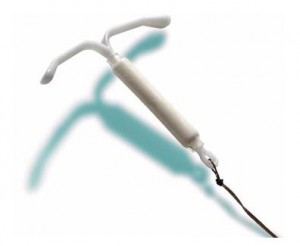FREE MIRENA CASE EVALUATIONS: CALL 1-800-632-1404
Our team of attorneys are now investigating claims and prepared to file Mirena lawsuitsinvolving the intrauterine contraceptive device Mirena®. Manufactured by Bayer Healthcare Pharmaceuticals, Inc., Mirena is an IUD device [intrauterine device] that must be inserted by a trained health care provider and is intended to provide contraceptive protection for up to five years. Some women have experienced serious adverse side-effects and potentially life-threatening complications following the implantation of theMirena device, including perforation of or imbedment in the uterus.
Mirena Injuries: Side Effects Impacting Consumers
Mirena intrauterine device manufactured by Bayer Healthcare was first approved by the FDA in 2000 for pregnancy prevention. In October 2009, the flexible hormone-releasing contraceptive was allowed for preventing heavy menstrual bleeding in women using intrauterine birth control devices. However, the reported side effects of the Mirena IUD cast serious doubt on the efficacy of it as a hassle-free, long-term birth control measure. Mirena is found to be stirring a number of serious complications in users, such as uterus perforation, intestinal obstructions, infection, device migration, ectopic pregnancies, abscesses, and pelvic inflammation.
Research Reports on Mirena Side Effect Injuries
The majority of doctors in the United States are hesitant to consider Mirena a safe and effective contraceptive, according to the findings of a survey presented at the San Francisco meet of the American Public Health Association on October 31, 2012. The survey highlighted reports of severe injuries caused by adverse impact of these devices in users. According to it, puncturing of the uterus is the most common side effect and those who have had abortion or just given birth to babies face greater risk of complications.
Another research report published in Obstetrics & Gynecology journal in March 2012 also corroborated existence of similar fears over the device safety. Based on a survey by Centers for Disease Control and Prevention, it disclosed that 60 percent of healthcare professionals suggest using Mirena intrauterine device only occasionally purely because of safety concerns.
The FDA has also admitted to have received reports indicating decreased libido, breast tenderness, ovarian cysts, pain, and bleeding in women during clinical tests involving Mirena IUD.
Mirena Side Effect Injuries: Major Problems
- Change in menstrual pattern: Use of Mirena IUD leads to irregular bleeding and spotting. Users experience shorter menstrual pattern within six months and many stop having periods after 12 months.
- Migration and Pain: The FDA has received a number of complaints highlighting how the Mirena IUD migrated from its original location causing pain, discomfort, and perforations. It slips out of the uterus that effectively ends its birth control efficacy. Many users begin to experience cramps with a week of the device insertion.
- Perforation: Dislocation pushes the Mirena IUD through the uterine wall. Even in normal conditions, insertion causes perforation of the uterus membrane. It can lead to damage to internal organs causing severe inflammation and abscesses. Surgery is the only option to remove the Mirena IUD in such cases.
- Pregnancy: Post-marketing reports and complaints to the FDA have confirmed serious pregnancy-related problems caused by Mirena IUD side effects. Ectopic pregnancy or fertilization outside the uterus is a result of its side effects. Women who used Mirena IUDs earlier face the risk of early labor pain, delivery, and miscarriage.
- Infection: Mirena IUD side effects lead to pelvic inflammatory disease. Inflammation of gonorrhea accompanying infection and abscesses put users at the risk of pelvic diseases.
- Ovarian Cysts: About 12 percent of Mirena IUD users are diagnosed with ovarian cysts. The excess release of levonorgestrel hormone results in asymptomatic enlarged follicles. These cysts can cause painful sexual intercourse and pelvic pain.
- Vaginal Problems: Mirena birth control device users have also complained of vaginal pain, bleeding, sores, watery discharge, smell, etc.
Mirena IUD side effects impact the quality of lives of users. It has been linked to extreme dizziness, abdominal pain, fever, severe headache, and sudden numbness in users. Light sensitivity, jaundice, allergic reactions leading to face and throat swelling, and hives are also observed in users affecting their lives. In January 2010, the FDA warned Bayer Healthcare for overstating the benefits of the Mirena IUD and hiding health risks during its promotional campaigns.
FOR A FREE CASE EVALUATION:
CALL TOLL FREE: (800) 632-1404
EMAIL: clicking here.
FILL OUT THIS FORM FOR FREE HELP:
NOTE: Our team of attorneys will review potential cases for all fifty states, including Alabama Alaska Arizona Arkansas California Colorado Connecticut Delaware Florida Georgia Hawaii Idaho Illinois Indiana Iowa Kansas Kentucky Louisiana Maine Maryland Massachusetts Michigan Minnesota Mississippi Missouri Montana Nebraska Nevada New Hampshire New Jersey New Mexico New York North Carolina North Dakota Ohio Oklahoma Oregon Pennsylvania Rhode Island South Carolina South Dakota Tennessee Texas Utah Vermont Virginia Washington West Virginia Wisconsin and Wyoming.
